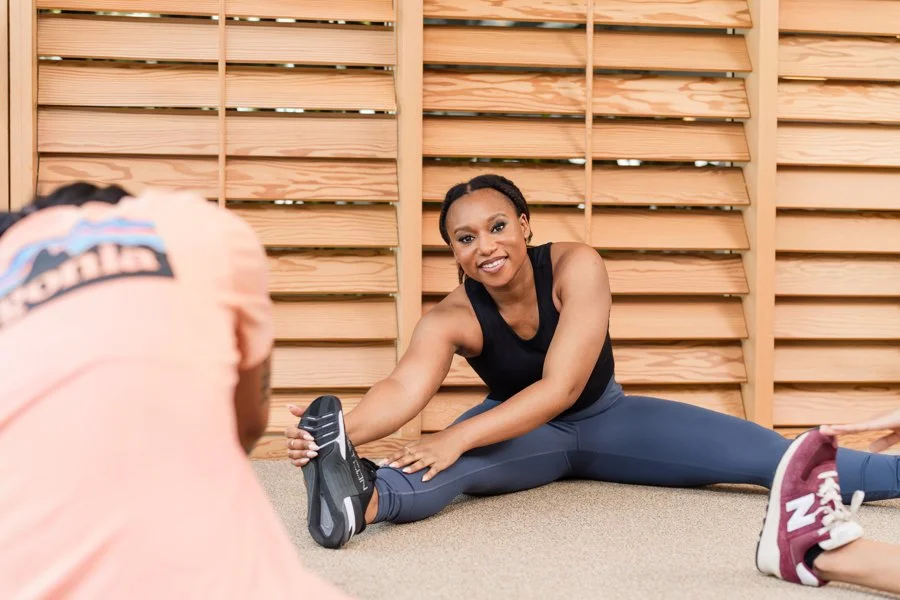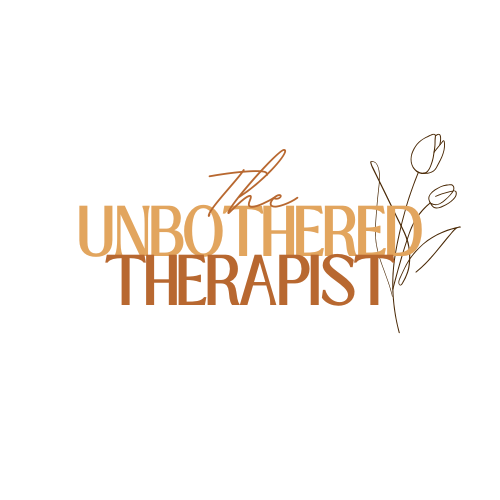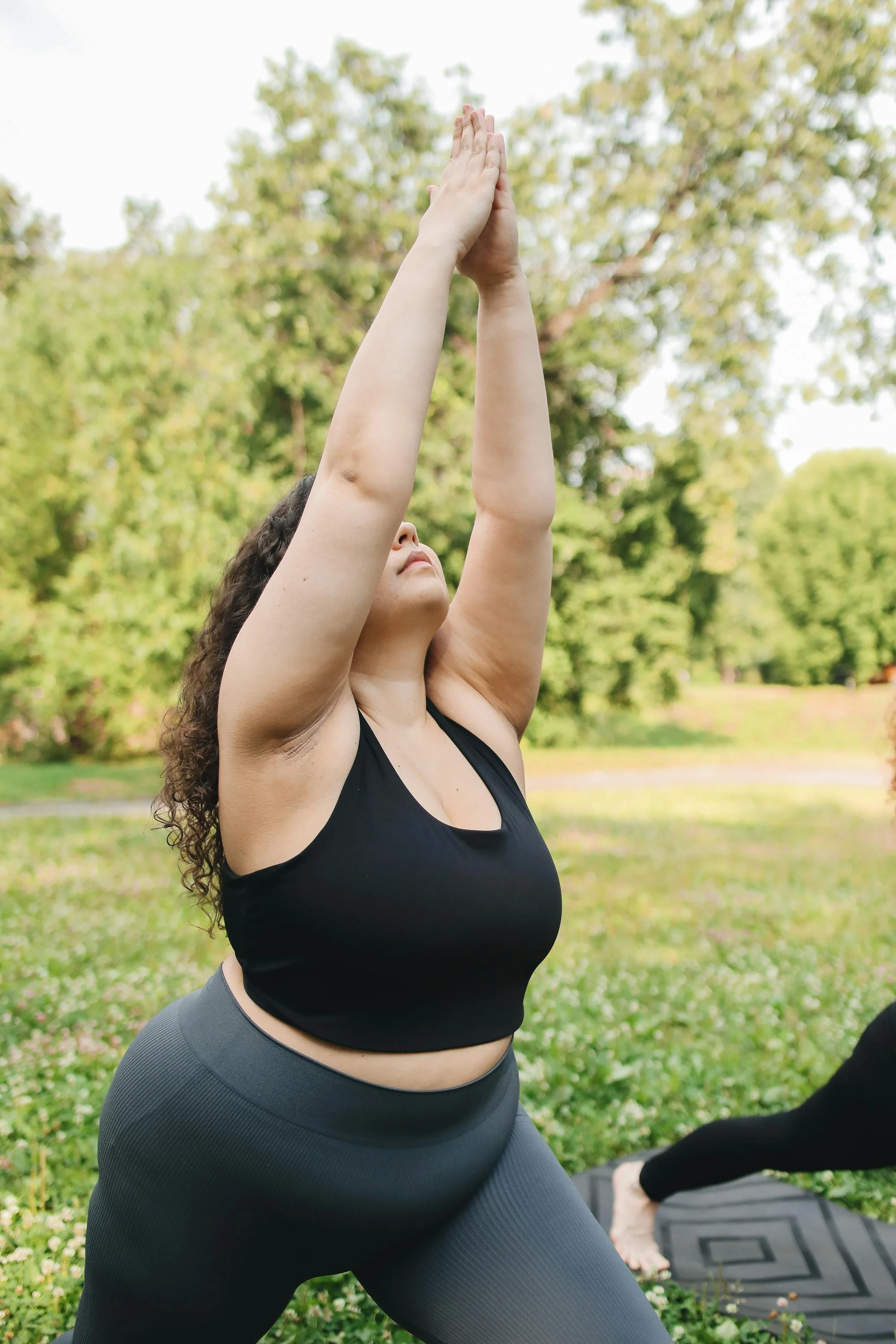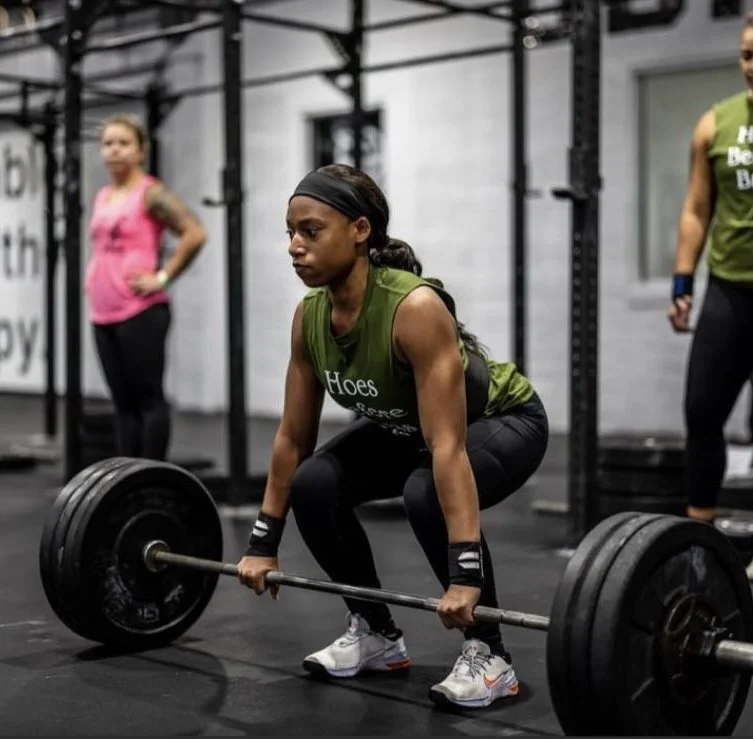
A Safer Way to Get Strong—No Shame, No Pressure, Just Healing Movement
*
A Safer Way to Get Strong—No Shame, No Pressure, Just Healing Movement *
Trauma‑Informed Personal Training in the DMV — Nervous System‑Safe Fitness Gaithersburg, Maryland & Online Worldwide
If you’ve ever promised yourself you’d “start fresh Monday”…
…only to lose motivation weeks later, you’re not alone. Traditional fitness programs often ignore the emotional side of exercise. Trauma-informed personal training blends movement with the same compassion, safety, and accountability you’d expect in therapy. It’s not about punishing your body. It’s about learning to move in ways that feel healing, empowering, and sustainable.
Why This Works When Resolutions Don’t
Most exercise programs fail because they only focus on the physical. Trauma-informed training recognizes that mood, stress, and life circumstances directly affect your ability to stay consistent.
Here, training sessions feel like therapy and exercise all in one:
A safe space to move without judgment
Built-in emotional support for when motivation dips
A routine that honors both your nervous system and your goals
For People Who Have Tried Everything
This may be the right fit if:
You’ve struggled to stick with resolutions or workout plans
Gyms feel overwhelming or unsafe
Mood and stress make it hard to find motivation
You want the benefits of therapy and training, in one integrated space
You need accountability without shame
What Client’s Are Saying
Former Client
“This is the first time I’ve stuck with a movement practice for more than a month. I actually look forward to our sessions.”
Community Member
“I didn’t realize how disconnected I was from my body until I started this. Now I feel grounded, even after tough days.”
The Transformation
With trauma-informed training, you’ll:
Reconnect with your body in a safe, supportive way
Build confidence and strength that carries into daily life
Develop realistic routines that last — not resolutions that fizzle
Experience movement as part of healing, not punishment
Ready to Reclaim Exercise as a Source of Strength, Not Stress?
Book a consultation today and discover how trauma-informed personal training can support both your body and your mind.
FAQs on Trauma-Informed Personal Training
Is this therapy?
No, this is not therapy. While I bring a trauma-informed lens from my background as a licensed therapist, personal training is a separate service focused on supporting your body—not processing your past. That said, your emotional experience is always welcome here.
What’s the difference between the free consult and a paid session?
The free consult is a short, no-pressure call to explore your goals and see if we’re a good fit. The paid 90-minute strategy session is a hands-on, personalized experience where we create a movement plan tailored to your body, your nervous system, and your healing journey.
Do I need to be “fit” to start?
Not at all. You don’t need a certain body type, fitness level, or history with movement to begin. This space is for all bodies and all experiences—including if you’ve felt disconnected from movement for a long time. We go at your pace, with care and zero pressure.
What if I’ve had a complicated or painful relationship with movement?
You’re not alone—and that’s exactly why this space exists. Whether your past includes body shame, fitness trauma, or disconnection from your body, our work will center your comfort and consent every step of the way. There’s no “pushing through” here—just support for coming back to your body in a way that feels safe and empowering.
What equipment do I need?
Nothing fancy. A mat, resistance band, or a sturdy chair is plenty to start. We’ll work with whatever feels accessible and safe for you—including bodyweight-only options.
Are you certified as a personal trainer?
Yes. In addition to being a licensed therapist, I’m also a certified personal trainer with specialized training in nervous-system-informed movement. This means you’ll get care that’s not only emotionally attuned, but physically grounded and evidence-based.
Personal Training Blog
-

The Balancing Act: Finding Time for Everything
As a solo private practice owner, therapist, fitness enthusiast, avid reader, dog-mom, and auntie, finding time for everything can feel impossible at times. However, with careful planning and prioritization, I have found ways and have coached clients to juggle their multiple roles and responsibilities while still making time for self-care and personal interests. In this blog post, I'll share some strategies that have helped me maintain balance and manage my time effectively.
-

How Trauma-Informed Fitness Can Support Your Healing Journey
Healing from trauma is no easy task, and for many of us, the journey can feel overwhelming and isolating. But what if I told you that your body could be a powerful ally in this process? That’s where trauma-informed fitness comes in—a practice that goes beyond traditional exercise to support not just your physical health but your emotional and psychological well-being as well.
-
5 Lessons I Learned in My Fitness Journey as a Trauma-Informed Personal Trainer and Therapist
Fitness has been a huge part of my life for years! I used to thrive in the world of fitness competitions and fitness challenges all while chasing peak aesthetics, rigid goals, and external validation. However, what began as empowerment slowly but surely turned into burnout. Looking through the lens of both a trauma-informed therapist and a personal trainer, I now understand just how deeply our relationship with our bodies is shaped by the narratives we’ve learned and how we can reclaim our relationships with our bodies/movement by rewriting them.






